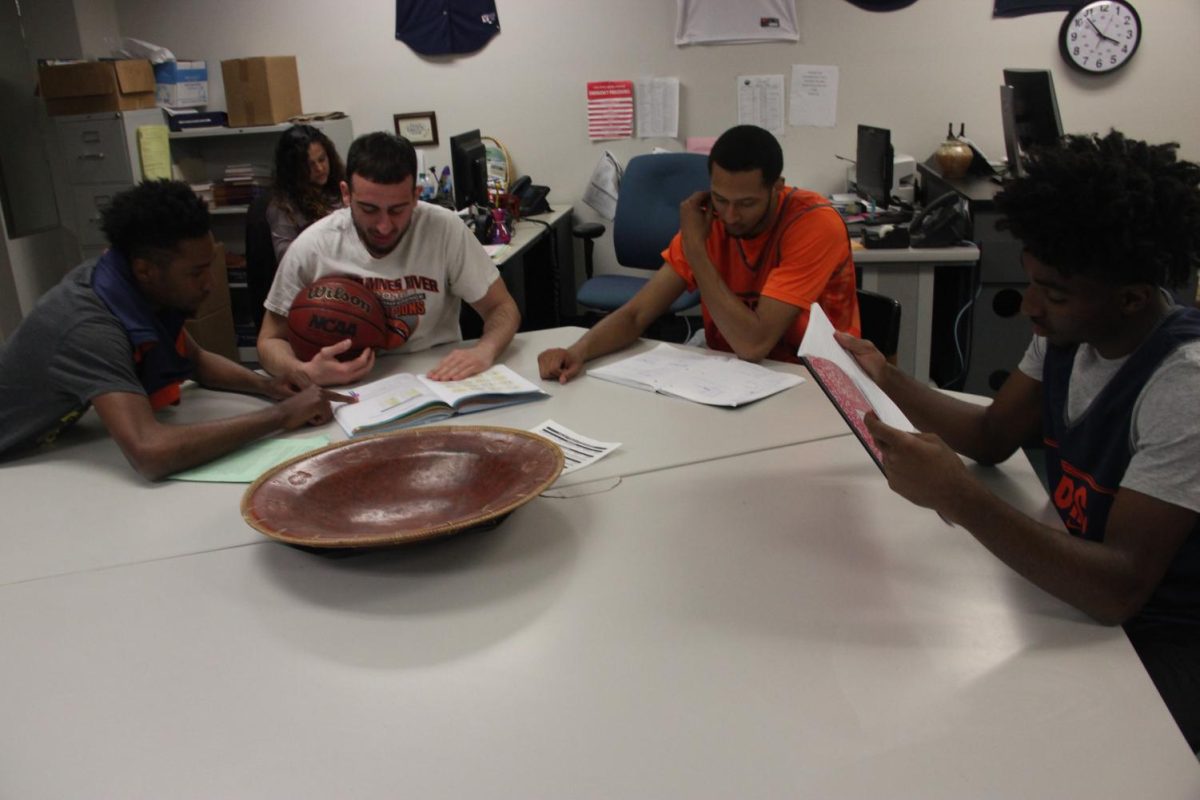Athletes have to study more than their playbooks
Members of the men’s basketball team putting in time in the study hall in CAC 104 to keep their grades up so they can stay on the court.
There are some senior students in high school that play sports and don’t receive scholarships, which jeopardizes their chances on continuing to play at a university. This is what leads them to a community college.
They’re on a deadline the minute they commit to play for a college, which means to transfer out in two years exactly.
“All student athletes have to take 12 units or more in order to be eligible to play on their team, and that’s the bare minimum,” Athletic Director Collin Pregliasco said. “In order to get out in two years is bare minimum of taking 15 units per semester.”
Athletes know that they’re on the clock to be in and out once they complete all their academic requirements in order to transfer, and continuing to play their sport at a University.
General college students have resources and assistance to help them succeed but not like athletes do. Athletes have their own counselor, director and coaches that focus on getting them to the next level.
“My responsibility is to make sure that athletes have to meet their requirements in order to compete,” Academic Counselor Ann Welty said. “There’s a lot of checks and balances.”
There is a total of 150 athletes here at Cosumnes River, and the primary focus is academics, so how can they get from point A to point B?
The transfer rate of community college students to a four-year is 24 percent and out of those students only 17 of them were athletes according to Cal-PASS Plus.
“School comes first,” Head Baseball Coach Don Mico said. “If they’re not good in the classroom they’re not able to play.”
The Hawks Study Center, located in CAC 104, serves as the study hall for student-athletes throughout the semester. It hosts a variety of amenities such as tutoring to assist the athletes to be successful in the classroom.
“On our volleyball team we actually have them do six hours of study hall on top of going to practice and going to class,” Head Volleyball Coach Kari Post said.
The Study Center is provided with supervision to ensure a work area productive to learning, with tutors from different departments.
“Really it’s the wanting desire to transfer to play at the four-year, so typically anything under a 2.8 you’re not going to transfer,” Pregliasco said. “Nobody is going to recruit you with that GPA, so they need to make sure that their grades are up.”
Student-athletes are no different than general students, for every student has a plan for themselves and their situation does not involve others in some cases. And, meeting the deadlines for transferring in two years is a lot of classes to complete.
That’s why athletes are persistent on their daily schedules per week, and some work part and full-time jobs.
“Coach keeps on top of things, and you don’t wanna take a break and not do your homework which that will cost you to play,” Infielder Clay Daval of the men’s baseball team said.
Student-athletes must be self-motivated and very aware of the best course of actions, and that’s having to rely on coaches and recruiters to basically get them into the best situation as possible. They want to transfer and play at a university that is the goal.
“Time management is the most important thing,” Pregliasco said. “A lot of people don’t understand taking 18 units sounds great on paper, but then realize that’s a lot and some can make it happen.”

